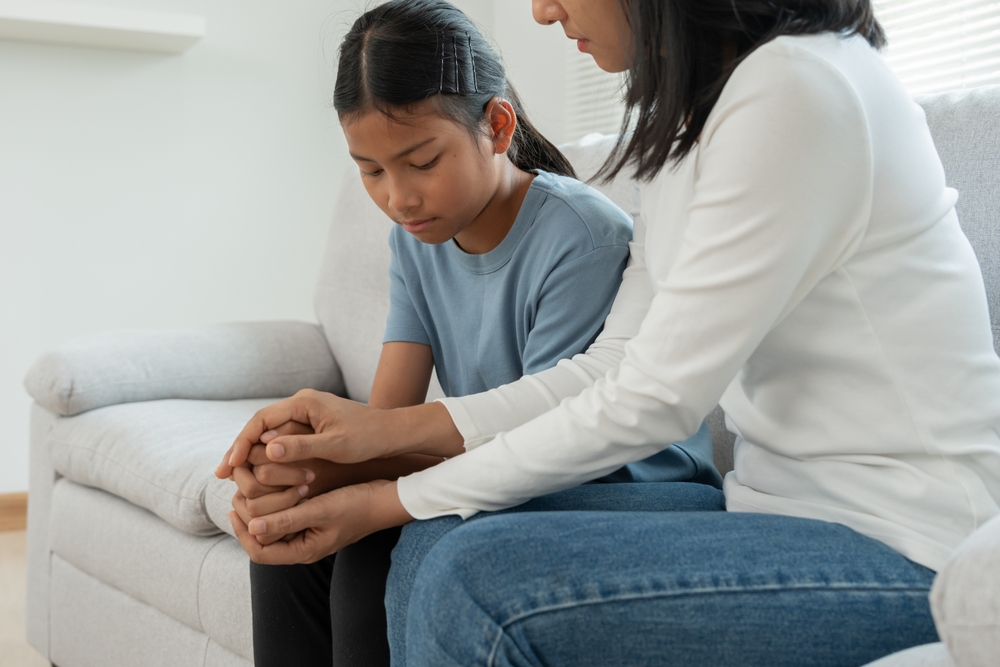The experience of grief and loss is a universal aspect of the human condition, yet when it strikes during adolescence, it brings unique challenges. The Mayo Clinic explains that “grief is a strong, sometimes, overwhelming emotion for people…” Grief affects the human limbic system by disrupting certain brain chemicals (e.g., serotonin and dopamine). Dopamine is the neurotransmitter associated with one’s reward center and feelings of pleasure. Serotonin is known as one of the chemicals responsible for maintaining one’s mood balance. Grief will manifest in each teen differently, as there is no single way to grieve. Coping with the profound emotions that accompany loss as a teen can sometimes lead to a journey through the depths of depression.
What Is Teenage Depression?
Depression, medically referred to as major depressive disorder (MDD), is listed in the Diagnostic and Statistical Manual of Mental Disorders, Fifth Edition (DSM-5), and is characterized by persistent sadness and a lack of interest or pleasure in previously rewarding or enjoyable activities. The symptoms of depression can vary from mild to severe. Some common symptoms of teen depression may include the following, provided by the Mayo Clinic:
- Low self-esteem
- Irritable
- Hopelessness
- Crying spells
- Feelings of sadness
- Irrational feelings of anger and/ or frustration
- Conflict with family and friends and/ or social isolation
- Seeks excessive external validation and reassurance
- Difficulty concentrating
- Compromised memory
- Decision making difficulty
- Loss of energy
- Sleep disturbances (e.g., insomnia, sleeping too much)
- Substance abuse
- Weight fluctuation
- Changes in appetite
- Random body aches and pains
- Lacks personal hygiene
- Self-harming behavior (e.g., burning, cutting, excessive piercing, etc.)
- Suicidal ideation
The combination and severity of symptoms that manifest will be specific and unique to each adolescent. If left untreated depression can result in long-lasting emotional, functional, and physical consequences.
Treatment
Treatment for adolescent depression often requires an individualized, multidisciplinary approach. The American Academy of Family Physicians (AAFP) underscores common components that may make up one’s treatment plan for MDD, which typically include a variety of psychotherapeutic approaches and medication. Some of the common therapeutic modalities incorporated into a teenager’s treatment plan for depression could include one or more of the following: cognitive behavioral therapy (CBT), dialectical behavior therapy (DBT), expressive arts therapy, family therapy, interpersonal psychotherapy (IPT), and mind-body activities. The U.S. Food and Drug Administration (FDA) has approved the two medications that can be used for the treatment of teenage depression, which include Lexapro (generically: escitalopram) and Prozac (generically: fluoxetine). The treatment plan for teen depression will consider the nuanced mental health needs of the individual teenager and will be customized accordingly. Further, the specifics of a teen’s treatment plan will depend on the severity of his or her symptoms. In most cases integrating a combination of both psychotherapy and medication into one’s treatment plan yields the most successful long-term results.
For Information and Support
Every family in need of mental health treatment must select a program that will best suit the needs of their family. When one member of a family struggles, it impacts everyone in the family unit. To maximize the benefits of treatment we work closely with the entire family to ensure that everyone is receiving the support they need through these difficult times.
Seeking help is never easy, but you are not alone! If you or someone you know needs mental health treatment, we strongly encourage you to reach out for help as quickly as possible. It is not uncommon for many mental health difficulties to impact a person’s life, long term. Pursuing support at the beginning of one’s journey can put the individual in the best position to learn how to manage themselves in a healthy way so they can go on to live happy and fulfilling lives.
OUR KNOWLEDGEABLE ADMISSIONS TEAM CAN BE REACHED 24/7 AT INFO@PACIFICRTC.COM OR CALL: 800-531-5769
We are available to answer any questions you may have regarding mental health treatment and our residential program, anytime. Contact us today using the form to the right.






